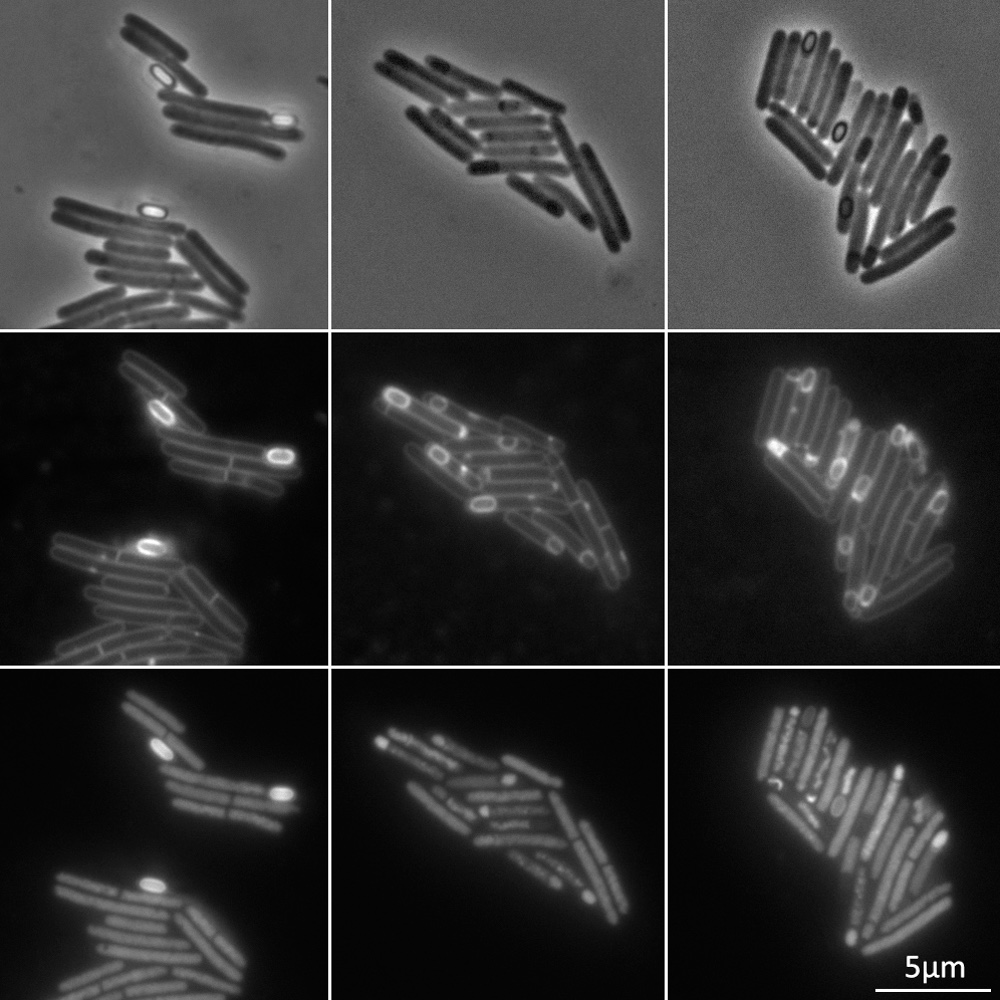
Inducible expression of spo0A as a universal tool for studying sporulation in Clostridium difficile
Dembek M, Willing SE, Hong HA, Hosseini S, Salgado PS, Cutting SM
Frontiers in Microbiology, 2017
Abstract
Clostridium difficile remains a leading nosocomial pathogen, putting considerable strain on the healthcare system. The ability to form endospores, highly resistant to environmental insults, is key to its persistence and transmission. However, important differences exist between the sporulation pathways of C. difficile and the model Gram-positive organism Bacillus subtilis. Amongst the challenges in studying sporulation in C. difficile is the relatively poor levels of sporulation and high heterogeneity in the sporulation process. To overcome these limitations we placed Ptet regulatory elements upstream of the master regulator of sporulation, spo0A, generating a new strain that can be artificially induced to sporulate by addition of anhydrotetracycline (ATc). We demonstrate that this strain is asporogenous in the absence of ATc, and that ATc can be used to drive faster and more efficient sporulation. Induction of Spo0A is titratable and this can be used in the study of the spo0A regulon both in vitro and in vivo, as demonstrated using a mouse model of C. difficile infection (CDI). Insights into differences between the sporulation pathways in B. subtilis and C. difficile gained by study of the inducible strain are discussed, further highlighting the universal interest of this tool. The Ptet-spo0A strain provides a useful background in which to generate mutations in genes involved in sporulation, therefore providing an exciting new tool to unravel key aspects of sporulation in C. difficile.